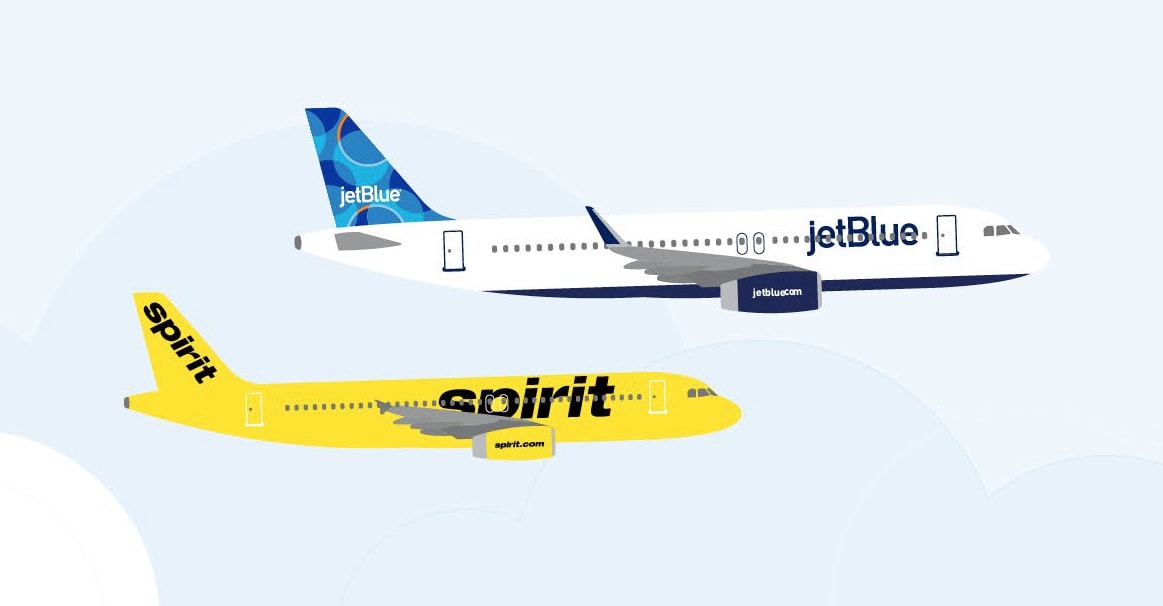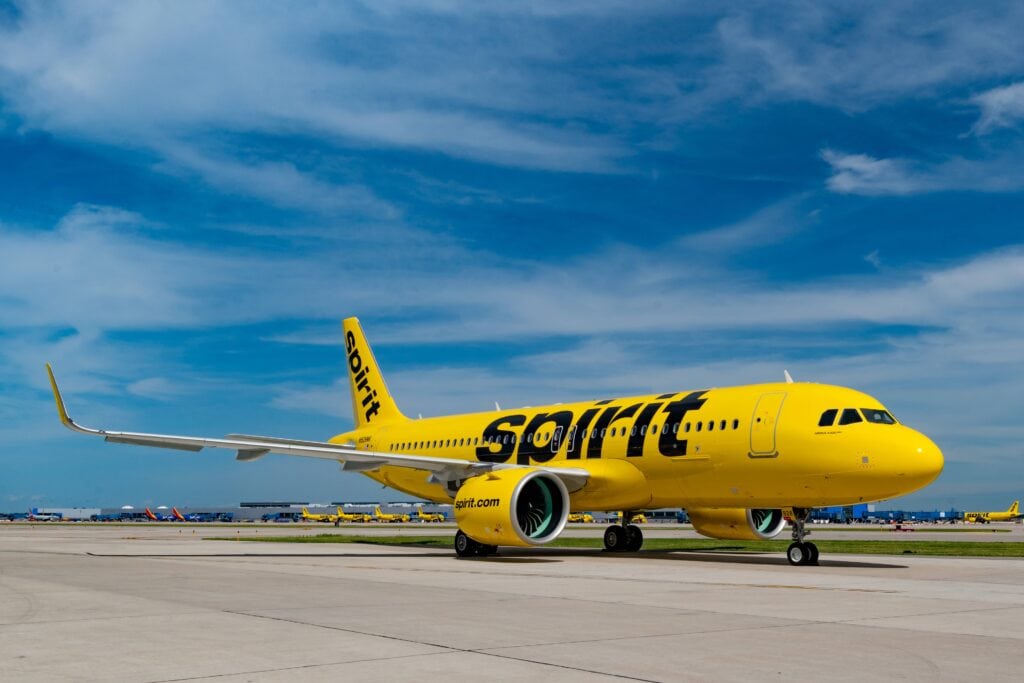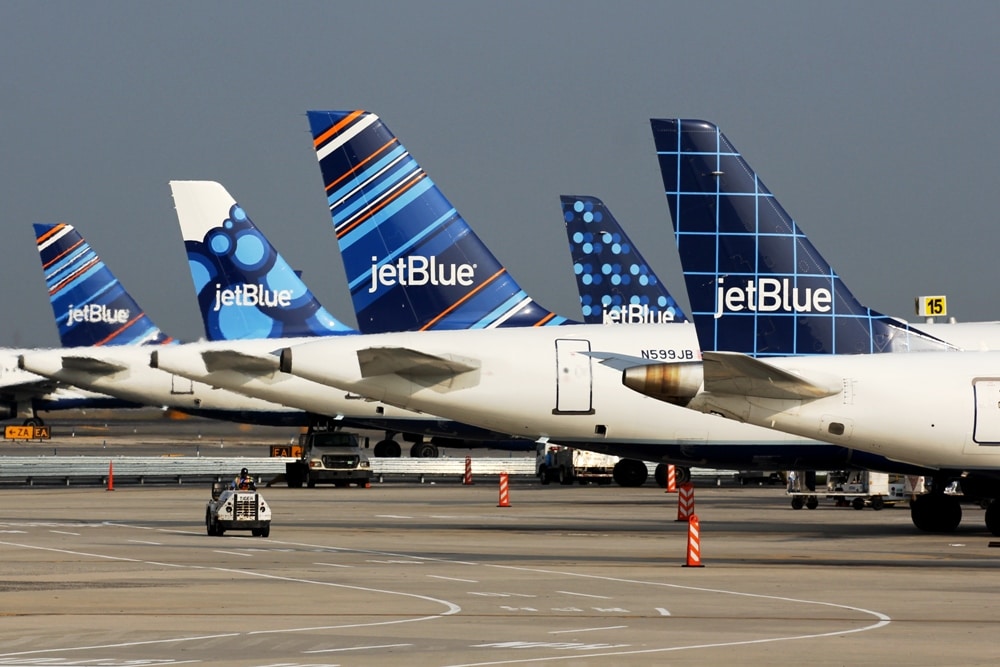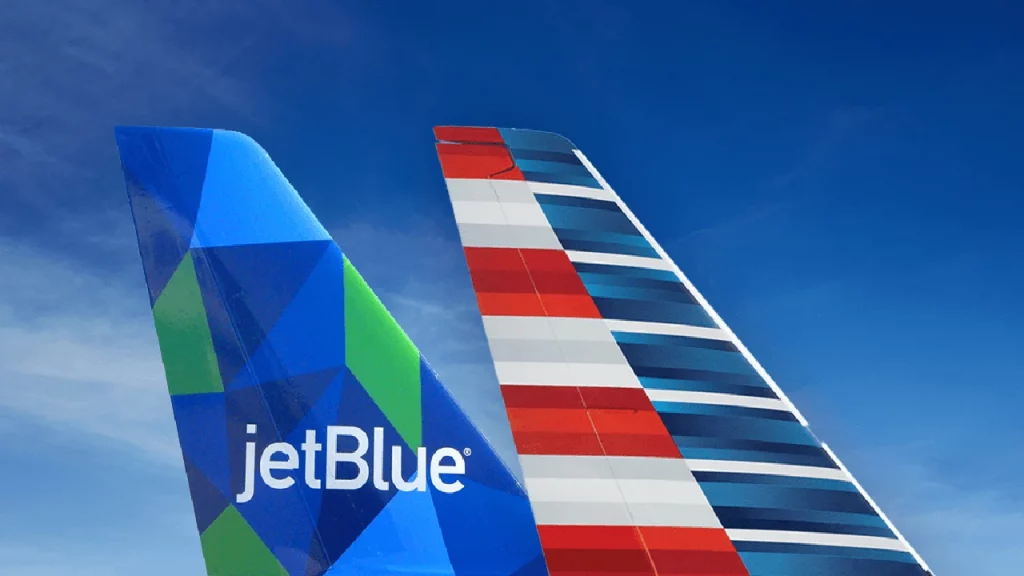JetBlue’s Mega Merger with Spirit Airlines Halted by Federal Judge
JetBlue's proposed acquisition of Spirit Airlines has been blocked due to concerns over its effect on competition
by Samir Kadri
January 17, 2024

Illustration: Courtesy of JetBlue Airways
A federal judge has blocked JetBlue’s $3.8 billion merger with rival Spirit Airlines, causing the latter’s shares to plummet 17 percent in morning trade on Wednesday.
“Today’s ruling is a victory for tens of millions of travelers who would have faced higher fares, and fewer choices had the proposed merger between JetBlue and Spirit been allowed to move forward,” U.S. AG Merrick B. Garland said on the JetBlue-Spirit decision.
William Young, a U.S. district judge in Boston, ruled that customers who depend on Spirit’s budget fares would be unreasonably ‘harmed’ by the merger.
“Spirit’s unique position in the domestic scheduled passenger airline industry would be exceedingly difficult for another airline, or a combination of other airlines, to replicate, even with low barriers to entry and the dynamic nature of the industry inasmuch as they face the same, industry-wide aircraft sourcing issues,” said Judge Young.

Photo: Spirit Airlines, Airbus A320neo. / Courtesy of Spirit Airlines.
“If JetBlue were permitted to gobble up Spirit—at least as proposed—it would eliminate one of the airline industry’s few primary competitors that provides unique innovation and price discipline.”
This mirrors the U.S. Department of Justice’s stance, which has long alleged that the deal would impair competition and stunt the circulation of low-priced airfares.
The decision has left Spirit in the lurch and with two likely choices before it—seek out another buyer or file for bankruptcy.
Increased operating costs and persistent supply chain problems have hampered the company’s performance, with concerns mounting about its ability to repay its debt, which will be paid in full next year.
Indeed, some believe JetBlue may have dodged a bullet, considering how poorly Spirit Airlines has performed since the merger was announced.

Photo: Courtesy of JetBlue Airways
“We believe this is a positive for JetBlue, as business at Spirit turned negative between the time the merger was announced to now,” notes TD Cowen aviation analyst and managing director Helane Becker.
“We believe Spirit is likely to look for another buyer… but a more likely scenario is a Chapter 11 filing, followed by a liquidation. We recognize this sounds alarmist and harsh, but the reality is we believe there are limited scenarios that enable Spirit to restructure.”
While Spirit’s shares halved on Tuesday afternoon, JetBlue’s stock rose 6 percent in volatile trading.
JetBlue and Spirit said in a joint statement: “We disagree with the U.S. District Court’s ruling. We continue to believe that our combination is the best opportunity to increase much-needed competition and choice by bringing low fares and great service to more customers in more markets while enhancing our ability to compete with the dominant U.S. carriers.”
“JetBlue’s termination of the Northeast Alliance and commitment to significant divestitures have removed any reasonable anti-competitive concerns that the Department of Justice raised. We are reviewing the court’s decision and are evaluating our next steps as part of the legal process.”

Photo: Courtesy of JetBlue Airways
JetBlue’s lawyers attempted to deflect attention away from JetBlue and Spirit by pointing to their relatively small 8 percent combined control of the domestic aviation market.
By comparison, the four U.S. airline giants—American Airlines, United, Delta, and Southwest—control over 80 percent of the market following a series of concluded airline mergers that were all greenlighted by the federal government.
The decision bodes ill for Alaska Airlines’ $1.9 billion deal to buy Hawaiian Airlines, potentially setting a precedent that could impede Alaska’s ability to finalize their purchase. Shares in both Hawaiian and Alaska each fell by over 3 percent on Tuesday.




